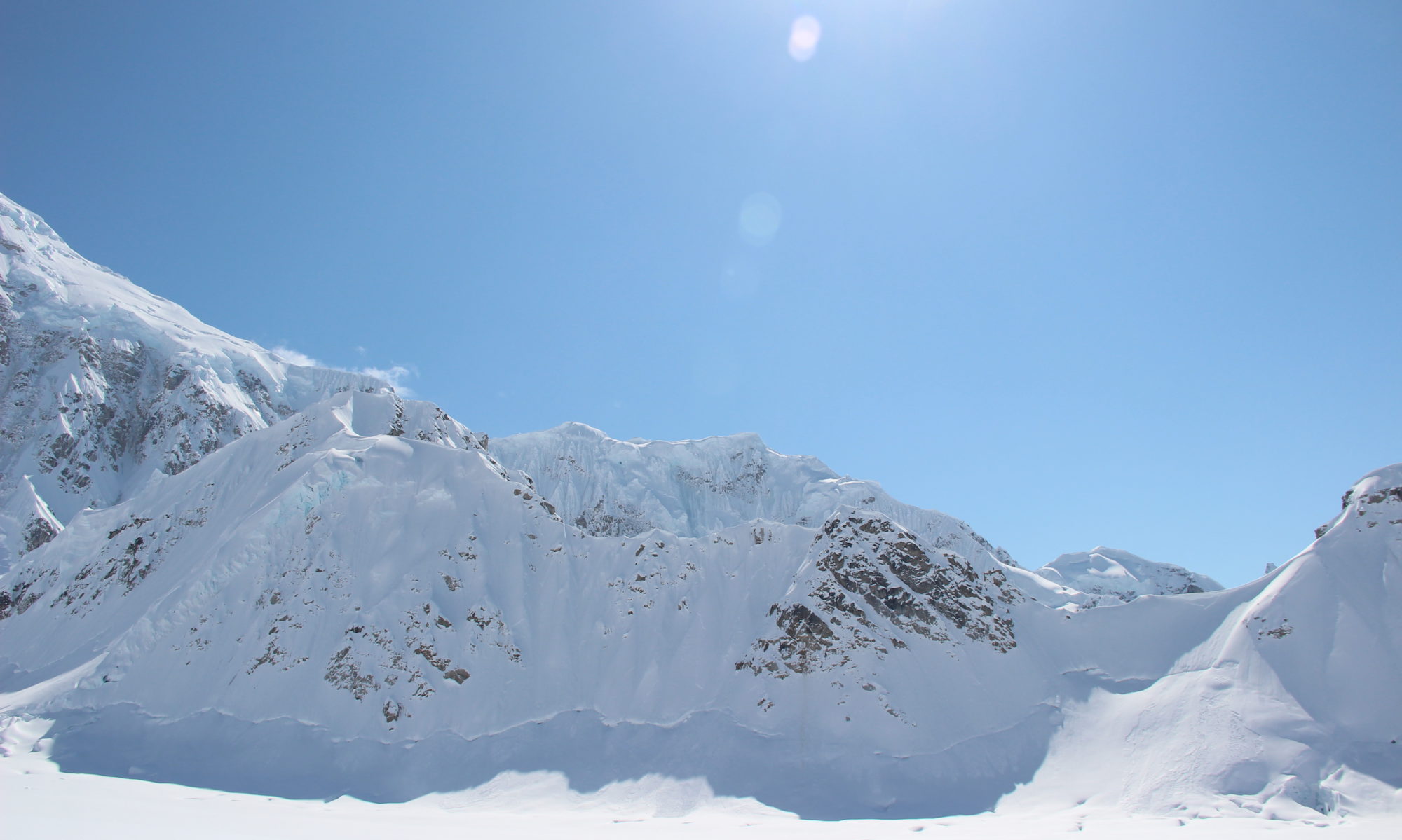I recently unearthed some dusty hard drives. I came across this trove of images that I took during a glacial expedition with the UMaine Climate Institute in May 2012. I took this opportunity to write a “backdated” journal entry to accompany a selection of the images. A full image gallery is at the bottom of this post.

Eight years ago, I boarded a plane to Alaska for a several week expedition at 12,000 feet with the UMaine Climate Change Institute. The Institute was there to collect data in advance of an ice core extraction on Mount Hunter, which is adjacent to Denali (formerly known as Mt. McKinley). I joined them to assist and to collect some data of my own for a senior project.

Arriving at basecamp was an unreal experience. We took a small plane from Talkeetna into the mountains. The single-engine Otter landed using skis on Kahiltna Glacier, and we proceeded from there on skis to our campsite. We had several groups of well-equipped hikers preparing to climb Denali, a park ranger on temporary assignment, and a solo pregnant woman for neighbors. However, our camps were at least a mile apart. Despite the spread, our footprint was like a speck compared to the glacial field we called home.


We prepared regular meals with camping equipment. The unlimited refrigeration and relative proximity to the runway meant there was little need for packing light or dehydrated food. Folks surprised me with angel food cake, fresh strawberries, and beer on my 21st birthday. One of them even brought a miniature keg called a “pig” from Denali Brewing Company. This celebration was an unexpected and lovely gesture by the teammates I met only days before.

Being in that landscape was an unreal experience. We collected data during the day in t-shirts and shorts and retreated to our heavily insulated sleeping bags for the -20 degree nights. We would often first see avalanches in the far distance and then moments later hear them. On unusually warm days, the “ground” underneath us would occasionally rumble and drop several inches as the snowpack compacted by melt. I once saw a small finch-like bird, which was remarkable given the ~10-mile distance from the nearest tree-line. I hope to make it back there someday, and I hope the glacier will still exist when I do.

On a personal level, this trip had weird timing–my early 20s brain was not a calm place to be; I was working through a lot. I carried significant grief and guilt from departing the abuse I endured in the past. I knew that a fun and meaningful but highly inappropriate multi-year romantic relationship needed to end. And as anyone in their early adult life can attest, there was that whole thing of figuring out what I wanted to do with my life. I credit the grand scale of the exotic landscape for giving me a chance to catch my breath.
Once we left the mountains, I spent a wonderfully aimless two weeks in the town of Talkeetna without much of a plan. Talkeetna formed during the gold rush that, in modern-day, profits greatly as the primary entry and exit point for Denali hikers. Before the 1990s, boat, rail, or bush plane was the only way to get to town.
I ate my weight in sourdough pancakes, struggled to read Kerouac by the river, chatted with strangers over beer, and bicycled on the town’s dirt roads. On the nights I couldn’t find a room to rent, I rolled out my sleeping bag in a nearby field. I guess this was my very short-lived hippie bum phase.

I also spent several days with Denali National Park Ranger Bob. Ranger Bob and his wife were both previously high school teachers; like all of my favorite educators, I think he could easily sense when people could use some kindness or encouragement. A great guy. On May 20th, we set up a solar eclipse viewing station that drew a sizeable crowd of tourists and locals.
Flying back to Maine was a trip of its own. I collected about 50 samples of snow while on the glacier, and those samples needed to make their way back to a chemistry lab in Orono. In addition to all my gear, I was dragging a big and suspicious-looking cooler through the airport, sealed with duct tape, with a sign that said something like “scientific samples, do not open.” Several people made cautious glances or asked about it, but airport security didn’t flinch.
In the months that followed, I worked with my advisor and folks at the UMaine Climate Change Institute to analyze the data. Ultimately, the research hit a wall, and I ran out of time. If you’re curious, my technical writeup of the experience is still available on the UMaine Climate Change Institute website at: https://climatechange.umaine.edu/2018/07/26/seasonal-correlation-air-temperature-isotopic-composition-snowfall-central-alaska-range/
Two UMaine donors, Dan & Betty Churchill, funded my entire trip through their Exploration Fund. Someday, I hope to help create opportunities for other students like mine. I’m hopeful they’ll offer to let me join for another field season.
